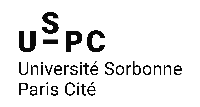Cosmopolitanism Revisited: Comparative Perspectives on Urban Diversity from the Gulf and Beyond
11 octobre (les Salons de l’INALCO, 2 rue de Lille 75007 Paris) et 12 octobre (salle G. Lavau, CEVIPOF, 98 rue de l’Université 75007 Paris)

This international conference is convened by the Université Sorbonne Paris Cité (USPC)’s interdisciplinary program Sociétés plurielles (Diverse Societies) and the Laboratory of Anthropology, Urbanity and Globalization (IIAC/LAUM), in collaboration with the French Center for Archeology and Social Sciences in Sanaa . It aims to revisit the notion of cosmopolitanism in Gulf cities and other regional areas from a comparative perspective. To enrich our understanding of a debatable issue, sociologist Elijah Anderson (Yale University), one of our keynote speakers, will bring into focus the notion of the “Cosmopolitan Canopy”.
The conference is a unique opportunity for scholars of the Gulf and other world regions to engage with cosmopolitanism or otherwise probe the intersection of global studies, urban studies and migration studies from a range of disciplines. More specifically, panels will be organized around the following research themes:
- The “cosmopolitan canopy”: cosmopolitan interactions in public spaces (A useful analytical tool for research on global super-diverse cities)
- Cosmopolitanism in theoretical and comparative perspectives (A reflexive approach to theoretical definitions of cosmopolitanism)
- New geographies of cosmopolitanism in Gulf cities (A theme that examines how Gulf cities can contribute to the discussion of cosmopolitanism)
PROGRAM "COSMOPOLITANISM REVISITED" & Abstracts
Organizing Committee: Laure Assaf (EHESS), Gabrielle Chomentowski (INALCO), Catherine Lejeune (Paris Diderot), Delphine Pagès-El Karoui (INALCO), Camille Schmoll (Paris Diderot), Hélène Thiollet (Sciences Po)
Scientific Committee: Clio Chaveneau (PSUAD), Vincenzo Cicchelli (Paris V), Hadrien Dubucs (PSUAD), Philip Kasinitz (CUNY), Franck Mermier (IIAC-LAU), Amin Moghadam (Princeton), Clémence Montagne (PSUAD), Aurélie Varrel (French Institute of Pondichéry).

Avec le soutien du Centre Français d’Archéologie et de Sciences Sociales et de l’Institut interdisciplinaire d’anthropologie du contemporain (IIAC/ équipe LAUM) 








